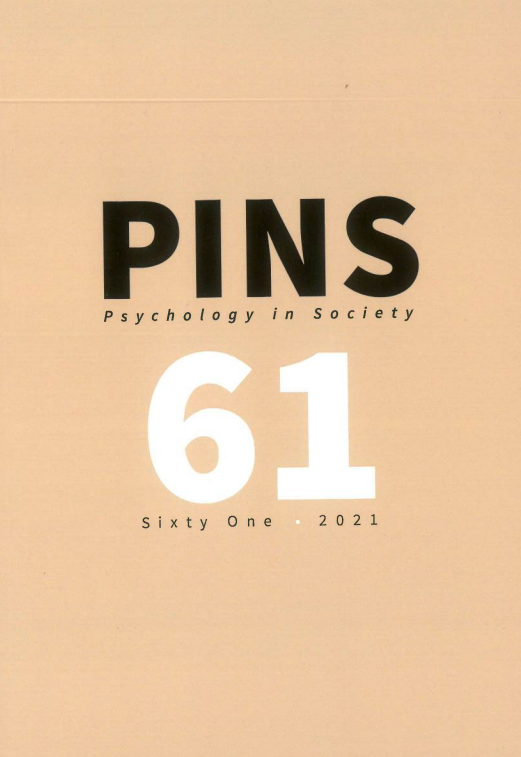Centring healing: reflexivity, activism and the decolonial act of researching communities existing on the margin
DOI:
https://doi.org/10.57157/pins2021Vol61iss1a5590Keywords:
reflexivity, activism, Afrocentric Decolonizing Kweer theory, LGBTIQ, asylum seeking, African LGBT, gathering circles, decolonial thinkingAbstract
This paper introducing innovative, creative, and decolonial research methodology is part of the ongoing reflexivity of a PhD currently underway. I provide insight into the development of the research through which I reflexively present my thoughts, as a decolonial feminist psychology researcher conducting research with African LGBT individuals seeking asylum in the UK. I engage with concepts of reflexivity, activism, decolonisation, and autoethnography, as they are played out within the research process. The paper reflects on three integrated theories underpinning the study, Trauma Theory (Mollica, 2006), Structural Intersectionality Theory (Crenshaw, 1989; Brotman 2013), Afrocentric Decolonizing Kweer theory (Sharif “Herukhuti” Williams, 2016), and the decolonial methodologies proposed for the PhD research. The theories used are a deliberate effort to depart from a Eurocentric way of conducting academic research. Foregrounding reflexivity, I offer my research as a deeply political, ethical, moral, and decolonial act that can remedy researched communities. It is uncommon for PhD scholars to offer, for journal publication, meditations about a PhD project that is still underway. Yet such knowledge is also valuable. Thus, the reflexive paper serves as a demonstration of a social justice agenda for conducting the doctoral research, a decolonial act in itself.
Downloads
Published
How to Cite
Issue
Section
License
This journal is an open access journal, and the authors' and journal should be properly acknowledged, when works are cited.
Authors may use the publishers version for teaching purposes, in books, theses, dissertations, conferences and conference papers.
A copy of the authors’ publishers version may also be hosted on the following websites:
- Non-commercial personal homepage or blog.
- Institutional webpage.
- Authors Institutional Repository.
The following notice should accompany such a posting on the website: “This is an electronic version of an article published in PINS, Volume XXX, number XXX, pages XXX–XXX”, DOI. Authors should also supply a hyperlink to the original paper or indicate where the original paper (http://www.journals.ac.za/index.php/pins) may be found.
Authors publishers version, affiliated with the Stellenbosch University will be automatically deposited in the University’s’ Institutional Repository SUNScholar.
Articles as a whole, may not be re-published with another journal.
The copyright of the article(s) lies with the author(s).
The copyright of the journal lies with PINS-psychology in Society.
The following license applies:
Attribution CC BY-NC-ND 4.0 - https://creativecommons.org/licenses/by-nc-nd/4.0/

